
 Shutterstock
Shutterstock
Many dogs experience fear and anxiety during thunderstorms, trembling, hiding, or barking as the storm rages on. While we often assume that loud noise is the leading cause, the reality is more complex. Factors like barometric pressure changes, static electricity, and environmental shifts can deeply unsettle them. Understanding these unexpected triggers can help us better comfort and protect our pets during stormy weather. By recognizing what truly frightens them, we can take steps to ease their anxiety and make them feel safer.
Sensitivity to Barometric Pressure
 Shutterstock
Shutterstock
Dogs have a heightened sensitivity to changes in atmospheric pressure, something that significantly shifts during a thunderstorm. The drop in barometric pressure can feel disorienting to dogs, causing them anxiety before the storm even begins. Some dogs can sense this change long before we do, becoming restless or uneasy as they feel the storm approaching. The drop in pressure can lead to discomfort, making thunder just one part of what scares them. For these dogs, the storm is more than loud noises—it’s a full-body sensory experience they can’t escape.
Static Electricity in Their Fur
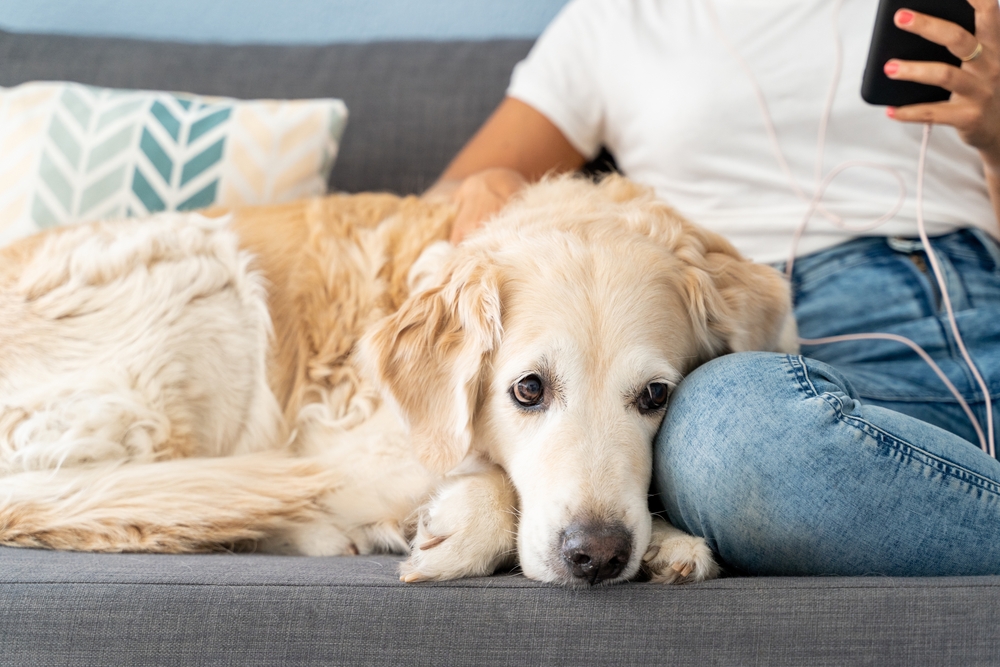 Shutterstock
Shutterstock
A lesser-known reason for thunderstorm anxiety in dogs is the buildup of static electricity in their fur. During a storm, the air is filled with electrical charges, and dogs, particularly those with longer coats, can feel a static buildup on their skin. This sensation is uncomfortable and can even cause mild shocks, leading to a fear of thunder. Some dogs may seek shelter in bathtubs or other grounded spaces to escape the discomfort. ThunderShirts and anti-static sprays can help minimize this sensation and offer relief during storms.
Loud Noises Triggering Anxiety
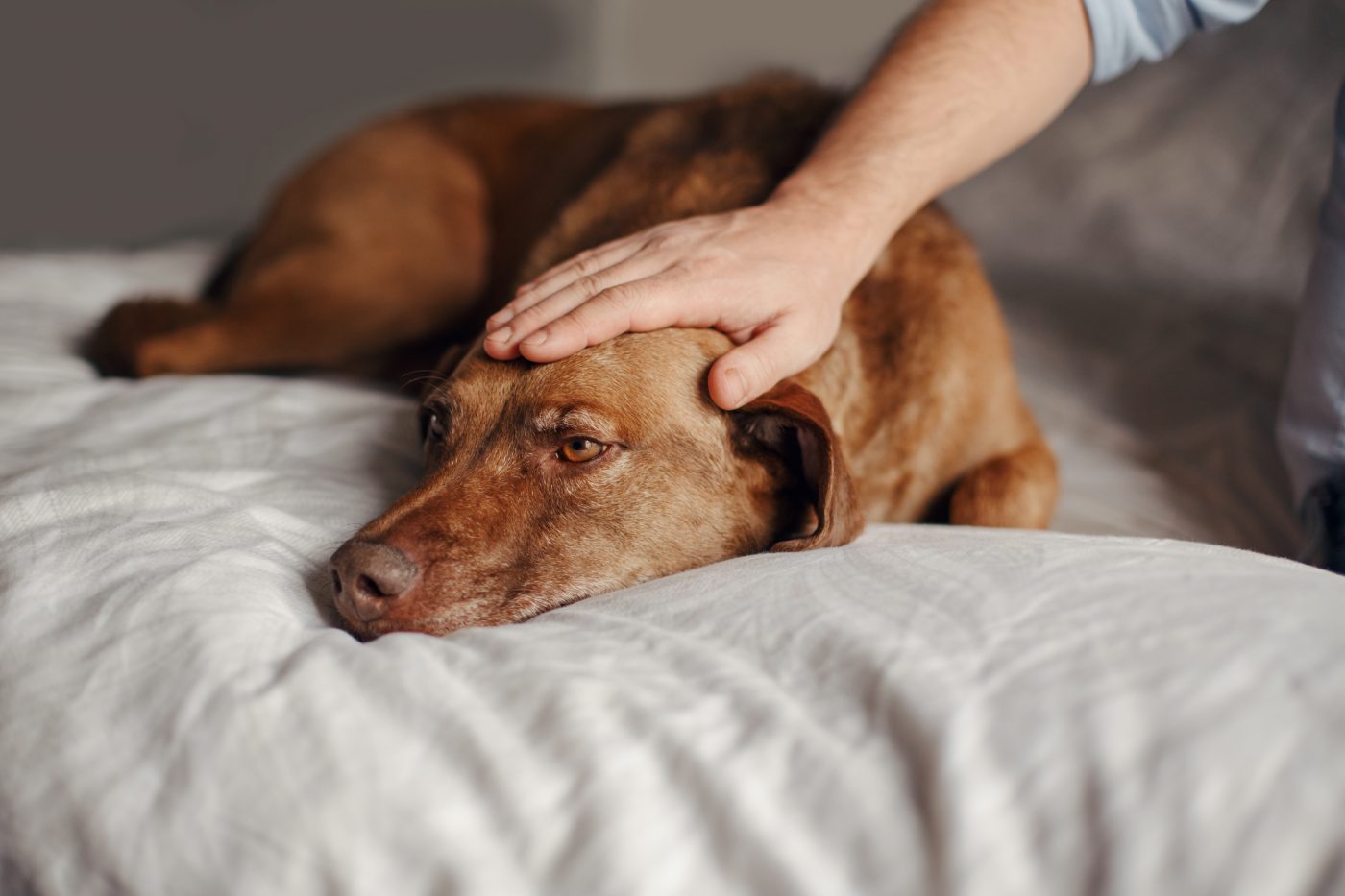 Shutterstock
Shutterstock
While thunder isn’t the only reason dogs fear storms, it certainly plays a big part. The unpredictable, booming sounds of thunder can be overwhelming for dogs, especially those with noise sensitivity or a history of trauma. The sudden, loud noise is startling, and since it’s unpredictable, dogs can’t adjust or prepare for it. The fear of thunder is similar to a phobia of fireworks, sirens, or other loud noises, and for dogs with heightened hearing, the sound of thunder can feel like a personal attack on their sensitive ears.
Changes in Ozone and Air Scent
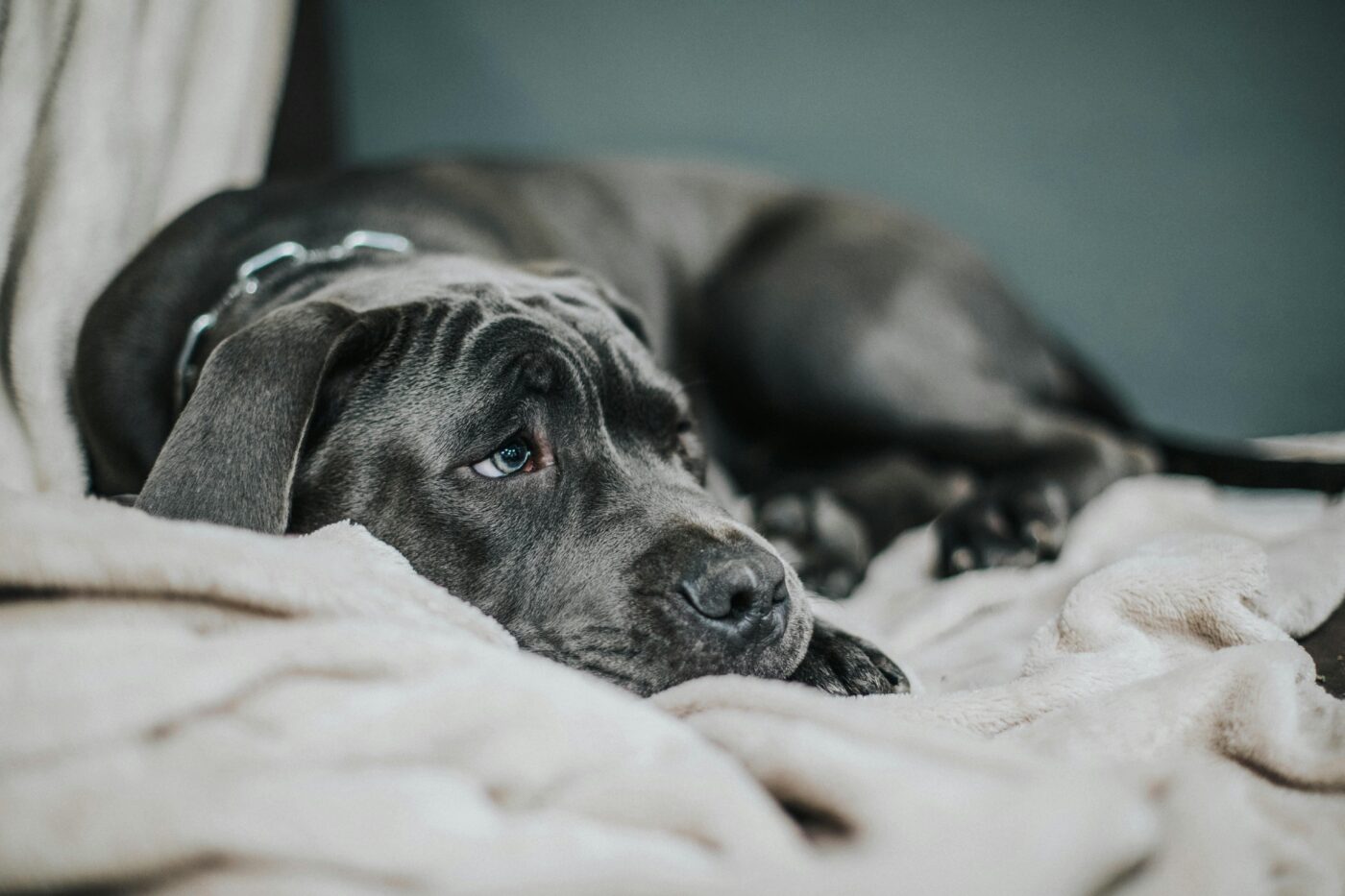 Shutterstock
Shutterstock
Before and during thunderstorms, the air often takes on a different smell due to ozone and moisture changes. Dogs have a keen sense of smell, and the sudden shift in the air’s scent can be unsettling for them. This unfamiliar change can make them anxious, as they can sense something is wrong long before the thunder rolls in. When dogs associate the smell of an impending storm with loud noises and other discomforts, it only adds to their sense of unease.
Fear of Lightning Flashes
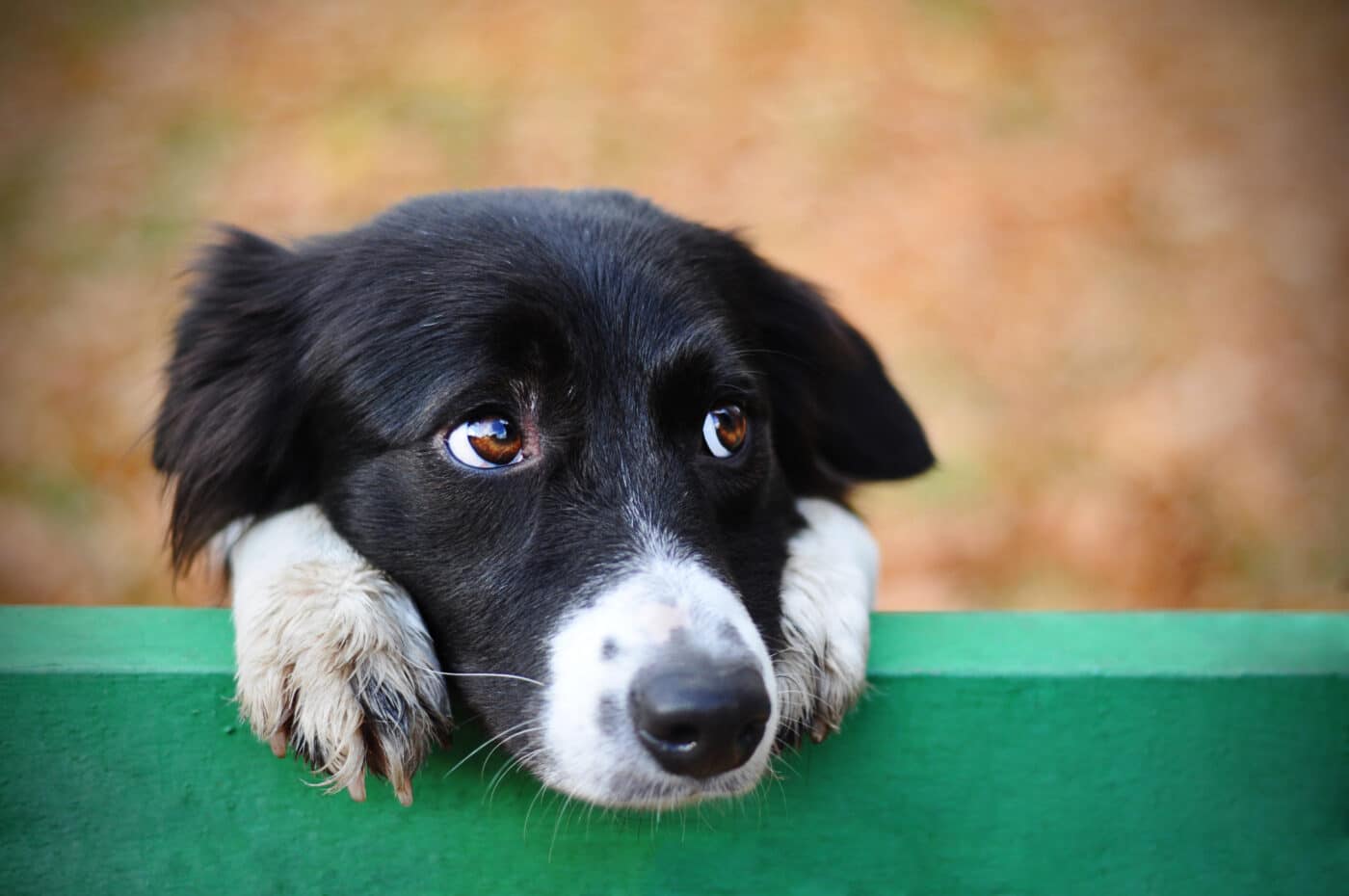 Shutterstock
Shutterstock
While we often focus on the sound of thunder, the visual aspect of a thunderstorm can also contribute to a dog’s fear. The bright, unpredictable flashes of lightning can startle and scare dogs just as much as the sound of thunder. For dogs with heightened senses, the combination of sudden flashes followed by loud crashes creates a double shock. This visual stimulus can lead to panic and further anxiety, especially in dogs that already struggle with sensitivity to their environment.
Negative Associations with Past Storms
 Shutterstock
Shutterstock
Dogs are creatures of habit, and they often develop fears based on negative past experiences. If a dog has had a traumatic experience during a thunderstorm—like being caught outside in one or being startled during a storm—they may develop a lasting fear of thunderstorms. Each subsequent storm serves as a reminder of that traumatic event, and the dog becomes conditioned to respond with fear or anxiety. Breaking this association requires patience, calm reassurance, and, sometimes, behavior modification techniques.
Changes in Routine and Environment
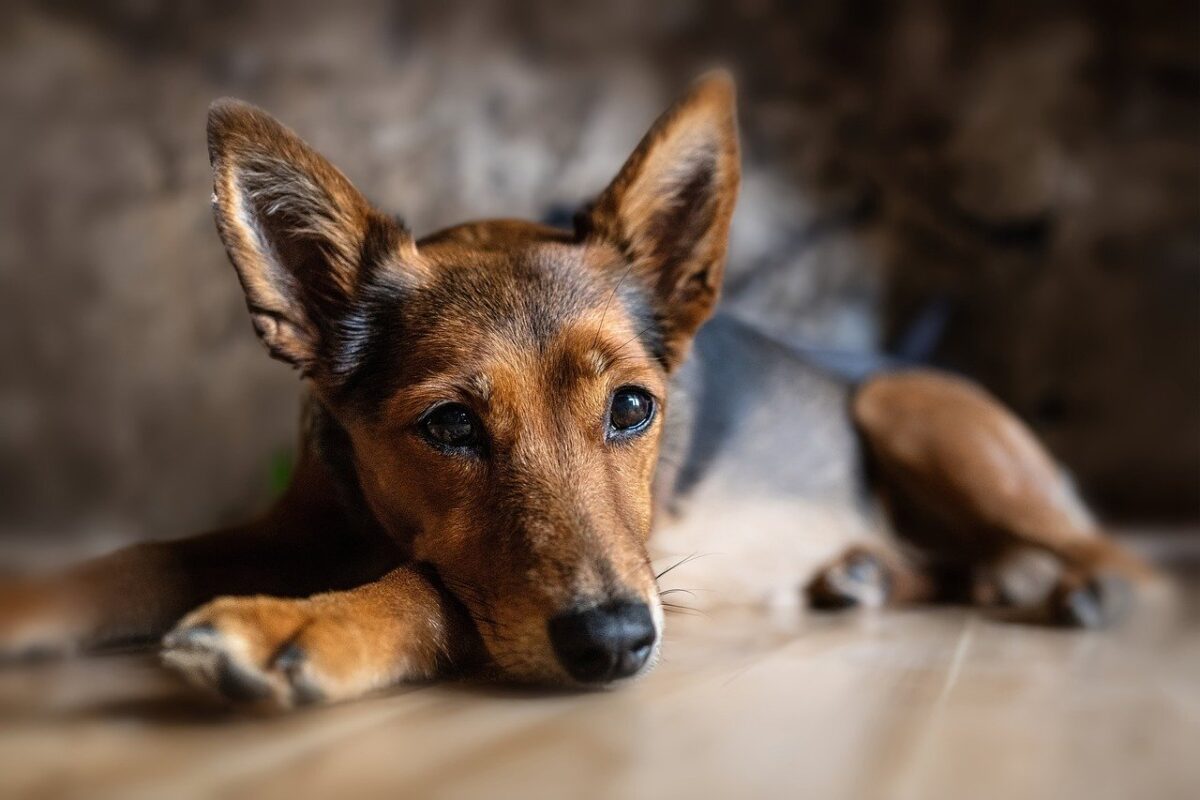 Shutterstock
Shutterstock
Thunderstorms often come with a disruption in routine, which can unsettle dogs that thrive on consistency. For example, you might close windows, turn off lights, or move furniture during a storm, all of which can confuse your dog. This change in their environment, combined with the already anxiety-inducing elements of a storm, can lead to heightened fear. Dogs that are sensitive to environmental changes may react more intensely during thunderstorms because their world feels unfamiliar and chaotic.
The Vibration and Low Frequencies of Thunder
 Shutterstock
Shutterstock
Thunder produces low-frequency sounds and vibrations that humans often don’t notice, but dogs, with their sensitive hearing, can pick up on these subtle vibrations. The ground may shake slightly during a thunderstorm, and these low, rumbling sounds can create a sense of impending doom for a dog. The combination of loud crashes and low-frequency rumbles makes the storm feel all-encompassing, triggering an anxious or fearful response.
Breed-Specific Sensitivities
 Shutterstock
Shutterstock
Some dog breeds are more prone to noise phobias and storm-related anxiety than others. Herding breeds, like Border Collies and Australian Shepherds, are known for their heightened sensitivity to sound, which can make them more susceptible to storm-related fears. Smaller breeds, like Chihuahuas, also tend to be more anxious by nature and may struggle more with thunderstorms. While all dogs can develop storm anxiety, these breed-specific traits can make it more likely that certain dogs will experience heightened fear.
The Shocking Truth Behind Your Dog’s Thunder Fear!
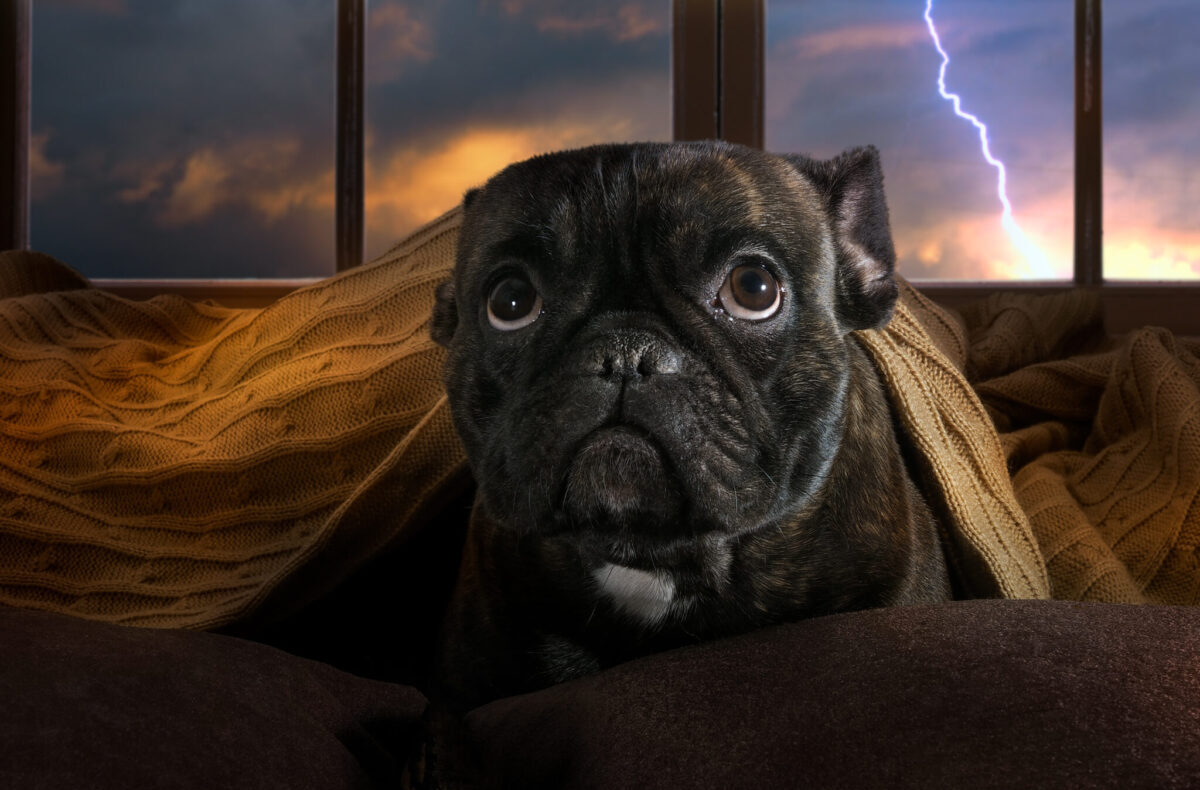 Shutterstock
Shutterstock
When your dog hides or trembles during a thunderstorm, it’s not just the loud noise causing fear. Thunderstorms bring a range of overwhelming sensory experiences for dogs, from barometric pressure changes to static electricity building up in their fur. These factors create a storm of sensations that can make dogs feel profoundly anxious and unsettled. When your dog quivers during a storm, it’s more than just the sound of thunder—they’re dealing with a complete sensory overload. Recognizing this helps you comfort and protect them more effectively during these stressful times.

